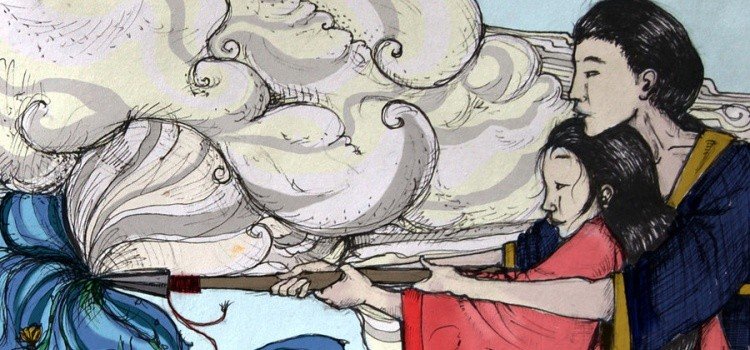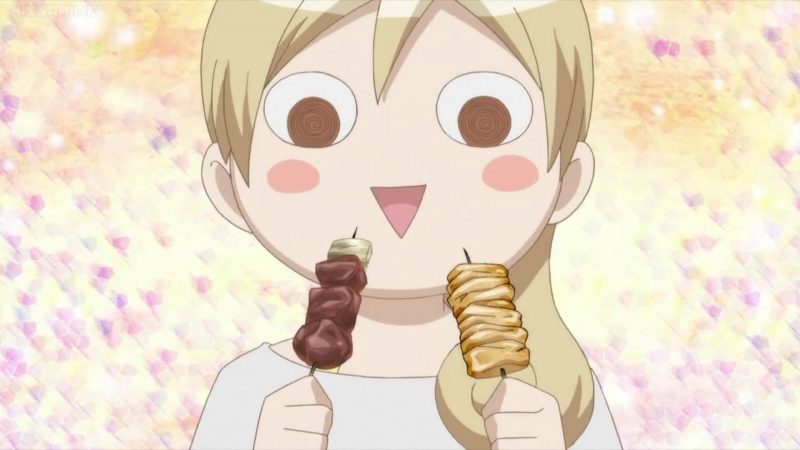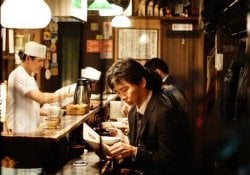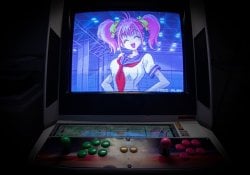Kami is a very popular Japanese word, but depending on the written form it can mean 3 things. In this article we will study in depth the meaning of the word Kami in Japanese which can mainly mean God, Paper or hair.
The Japanese language contains few phonemes, which ends up creating many words with the same pronunciation, but with different spellings and meanings. Such a phenomenon in the language is called a homograph.
Kami [神] - God in Japanese
When we talk about the word Kami in Japanese, one of the main meanings is God, written with an ideogram [神] that can refer to any deity or spirit.
The character [神] can also be used even in the title of the Emperor of Japan. It has also been used as lightning and is often used in words involving something fantastic or incredible. The ideogram can also convey the concept of soul and mind.
In Shintoism, the word kami [神] can be used either to refer to a god or to a multitude of gods present in nature, such as stones, trees, mountains and other elements where the gods that the Japanese believe in inhabit.

To formally refer to a powerful God, we use Kami-sama [神様]. The ideogram also has other readings like mi and shin which is commonly used in the composition of other words.
Some words with Ideogram [神]:
- Megami [女神] - Goddess It means Goddess;
- Shinto [神道] - It means Shinto;
- Shingaku [神学] - Theology It means Theology;
- Shinigami [死神] - Death god It means God of Death;
We recommend reading:
- The best anime of gods and deities
- God in Japanese - Religious words in Japanese
- Shinigami - Do you know these gods of death?
Kami [紙] - Paper in Japanese
Kami can also mean paper in Japanese when written with the character [紙]. Its other common reading is “shi” and it is present in other objects such as newspaper and paper money.
Kami can also create other interesting words like letter which in Japanese is “tegami” [手紙], literally the junction between hand and paper, since the letter is written by hand on a paper.

Kami [髪] - Hair in Japanese
Another meaning of Kami pronunciation is hair written with ideogram [髪]. This word is usually used to refer specifically to the hair on the head, which can also be “kaminoke” [髪の毛].
Another common way of saying hair in Japanese is tohatsu [頭髪]. When we want to talk about a person's hairstyle or hair style we use the word kamigata [髪型].
We recommend reading:
- How do Japanese women straighten their hair?
- 10 Secrets to Having Straight Hair Like the Japanese
- Anime Hair - Colors and Hairstyles and their meanings
- Is there prejudice with hair types and colors in Japan?

The article is still halfway through, but we recommend also reading:
Other Meanings of Kami
There are other Japanese words that also read kami, but with different meanings. There are also words that, despite not being homographs, share the same ideogram or similar initial reading.
For example, kaminari [雷] despite having a different ideogram and strictly speaking, formerly kami [神] was used to refer to thunder. So there is a certain history and similarity hidden behind the origin of the language.
In addition to God, hair and paper, see below other meanings of the word:
Kami [上] - Sovereign in Japanese
The character "ue" [上] used to refer to the direction of "up" can also be read kami where it means something involving superiority or rulership. Whether positions or social levels, words can contain such an ideogram and its pronunciation.
Kami [加味] - Seasoning and Flavoring
The pronunciation Kami composed of two characters [加味] is used to refer to seasoning or flavoring. The verb in the suru form can be created to refer to addition, inclusion and consideration. If it is written [佳味] it means something tasty and delicious.

Conclusion
It is interesting to see how many homographs there are in the Japanese language. Kami was the first homograph I learned, as they are 3 common words that language learners end up learning.
Did you know the kami homograph in the Japanese language? If you liked this article, share it and leave your comments, and don't forget to read other articles on our site.







